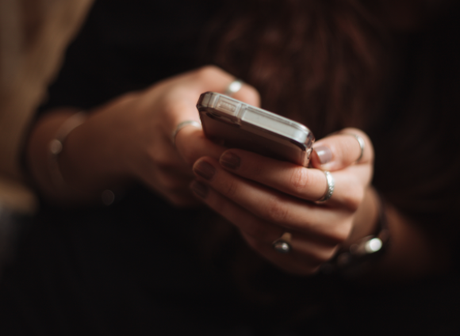By now, we're all aware that our cell phone numbers are not as private as we once thought. In fact, there are a variety of ways for someone to find out personal information about you just by having your cell phone number.
But what exactly can they learn? Here's a look at some of the things that can be uncovered with a simple cell phone number search.

Your name and address are the two most basic pieces of information that can be attached to your cell phone number. A reverse cell phone lookup will return this information for free in many cases.
All the person needs to do is enter your cell phone number into White Pages Premium, for example. They will be able to see your full name, address, and even other public records associated with your number.
This can be a major security concern, as it essentially gives anyone with your number access to your personal information and whereabouts.
If you're unlucky enough to have your cell phone number linked to your social media accounts, then anyone who does a reverse cell phone lookup on your number will be able to see those accounts as well.
This means that they would be able to see your profile picture, your user name, and any other public information that is associated with your account that you have not made private.
They would also be able to see any posts or messages that you have made public and could potentially use this information to try and scam or harass you.
This could potentially lead to identity theft or other online scams, so it's important to be aware of this and be sure to keep your social media accounts private.
One of the most dangerous things that can be revealed by a cell phone number search is your current location.
If someone has your cell phone number, they can easily use a reverse cell phone lookup to track your exact location at any given time. This is because your cell phone number is linked to your location via GPS.
This can be a privacy concern for a lot of people, as it means that someone could potentially track your movements without you even knowing.
So, if you're concerned about your privacy, it's best to be aware of this and take steps to protect your location.
If you've ever been involved in a court case or have any criminal records, your cell phone number is likely listed in those records.
This means that if someone does a reverse cell phone lookup on your number, they will be able to find out if you have any legal troubles in your past just by doing a simple search.
Of course, this information is a public record, so it's not necessarily a bad thing. But it is something to be aware of nonetheless to avoid any potential embarrassment.
In addition to your current address, a reverse cell phone lookup can also reveal any past addresses that are associated with your number.
If you've ever moved, your old address will still be attached to your cell phone number and could be easily found by anyone who does a search on it.
This could be problematic if you've moved and don't want your past address to be revealed, as it could give away more information about you than you intended.
If you own a home or other property or offering for rent, the contact information for that property is likely listed in public records along with your cell phone number.
Although this may not seem like a big deal, it could be a potential security concern if someone were to find out the address of your property.
They could use this information to try and break into your home or commit other crimes. So, it's best to be aware of this and take steps to protect your property information.
Filing your taxes each year generally requires you to provide your cell phone number. And although this information is supposed to be confidential, it's possible that it could be leaked or hacked.
Thus, if someone were to find your cell phone number, they could potentially use it to find out sensitive information about your taxes. From your income to your social security number, pretty much everything could be revealed.
If you've ever used your cell phone number to book a hotel or purchase plane tickets, then the information about your travels is likely stored in a database somewhere.
This means that if someone were to find your cell phone number, they could potentially use it to track your movements and find out where you've been. This might not be a big deal to some people, but it could be concerning for those who like to keep their travels confidential.
So, as you can see, there are a variety of ways that someone can get personal information about you just by having your cell phone number. Be sure to keep this in mind the next time you give out your number to someone. You never know who they might be or what they might do with the information.
There are a few things you can do to protect your cell phone number:
Only Give It Out to People You Trust
This is the most obvious solution, but it's also the most effective. If you're not comfortable with someone having your cell phone number, then don't give it to them.
This includes strangers, businesses, and even some friends or family members. Only give out your number to people who you know won't abuse it or use it to get personal information about you.
Use a Different Number for Sensitive Activities
If you don't want to give out your real cell phone number, you can always use a different number for sensitive activities. This could include booking hotels, making online purchases, or anything else that you wouldn't want others to have access to.
There are many different services that offer temporary or disposable phone numbers, so be sure to check them out if you need a number that you can use for privacy purposes.
Get a New Cell Phone Number
If you're really concerned about someone finding out personal information about you through your cell phone number, you can always get a new number.
This is a good option if you've had the same number for a while and don't want it to be linked to your past addresses or other personal information. It's also a good idea if you travel frequently and don't want anyone to be able to track your movements.
Just be sure to update all of your contacts with your new number to avoid losing touch with anyone.
It's important to be aware of the potential risks associated with sharing your cell phone number. While there are some benefits to doing so, there are also a number of dangers that you should be aware of.
By taking steps to protect your information and being careful about what you share online, you can help keep your cell phone number safe from prying eyes.

